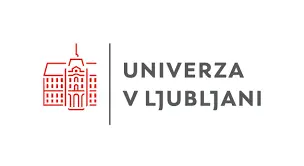Open Framework for TwinOps and vehicle specific Digital Twin for Software Defined Evs
Client
The problem
One of the biggest transformations on history in the automotive industry is being faced. The revolution in the automotive industry about the number of SW components, the number of providers and the continuous Over The Air (OTA) SW updates has arrived while the whole industry is getting ready for adapting to the software-defined vehicle (SDV) concept.
This is a challenge in terms of security and trustworthiness but also an opportunity for electric vehicles (EVs). EVs have three main needs:
-
- reducing energy consumption while increasing safety,
- competing more effectively with traditional vehicles (particularly within the EU sector) in terms of production cost,
- and enhancing the EV driver experience regarding vehicle charging (availability and power range (forecast).
The energy consumption reduction of each specific function has been the focus of OEMs and Tier suppliers until now, but a new opportunity arises thanks to the computational capacity of clouds and vehicles due to the implementation of High-Performance Computing (HPC) combined with the digitisation of EVs under the SDV architecture. Nevertheless, state of the art Digital Twin (DT) is still far from the complex reality of EVs core performance, somehow too naive. Besides, a given vehicle, in all its variants and HW and SW versions, is unique and depends on the actual use and its status in terms of health, and use of each specific critical components.
Taking into account the unicity of each vehicle, learning from the operational data of a series of vehicles (fleet) and the use of those data and digital models across all EV’s lifecycle (including operations and re-design) in an agile and continuous manner, is the key to unlock the necessary extra step in terms of energy consumption reduction without compromising comfort and safety, but on the contrary enhancing EV driver experience, safety, and cybersecurity.
The solution
To solving the problem, it is needed to apply a TwinOps process, by combining in an intertwined manner the specific knowledge of each EV’s health and status, a continuous integration/deployment process, and set of tools that allows a continuous and efficient OTA update of EV’s functionalities.
Research and development of DTs applied to EVs must be carried out to be one step closer to achieving a specific DT for EV. Exploitation of digitalization is needed to reduce development and validation time and therefore reduce costs to increase competitiveness of EVs and EU automotive sector. All of this, based on an automotive-level solution (lower cost and high reliability), and considering the impact in terms of driver experience.
The TWIN-LOOP will develop an Open Framework for TwinOps for EVs and a suite of digital tools for continuous improvement of Energy Consumption reduction, Hardware Costs minimisation, Driver Experience, and Vehicle Resiliency across the 4 stages of the vehicle lifecycle. The TwinOps concept is the combination of Digital Twins over a continuous integration/deployment production cycle (DevSecOps) and it leverages other sources of truth (e.g., CAD, Physics) to improve SW Verification and Validation (V&V), using precise models instead of (naive) abstractions. The specificity of each EV is taken into account (MyEV concept) to improve each stage, from design to validation in an infinite loop.
MOSAIC FACTOR is leading this project and we will contribute to the definition of the use cases for testing and validating the tools developed in TWIN-LOOP, to the adaptation of the DevSecOps methodology for software-defined EVs, and to the definition of the functional and non-functional requirements on the components to be developed in this project.
We will also contribute to the development of data-driven models for dynamic management of the EV and lead the development of MyEV Digital Twin Modules for components monitoring and power range forecasting and will contribute to the design optimization based on vehicle and fleet data.
We will also lead the definition and the implementation of the Open Framework for MyEV Digital Twin and will participate in the integration of MyEV and Extended EV APPS integration, as well as participate in the driver profiling and user engagement activities
Data

Results
So far, we have organised the project kick-off meeting in Barcelona.






































